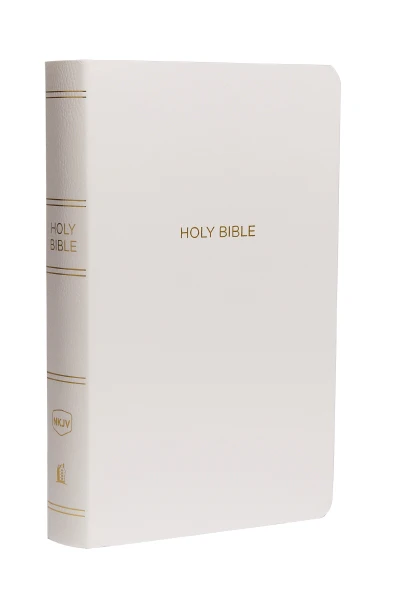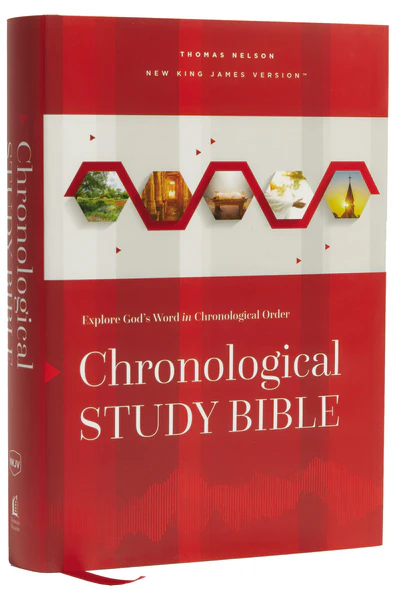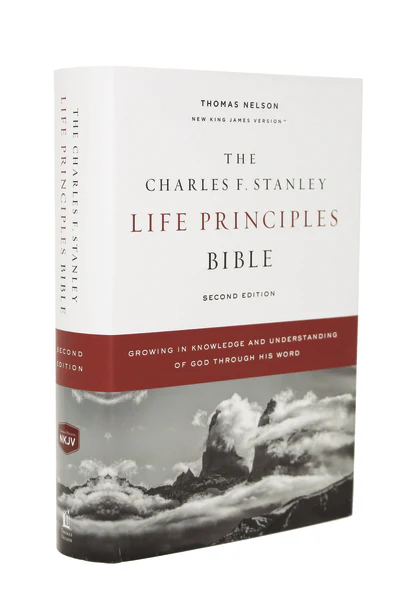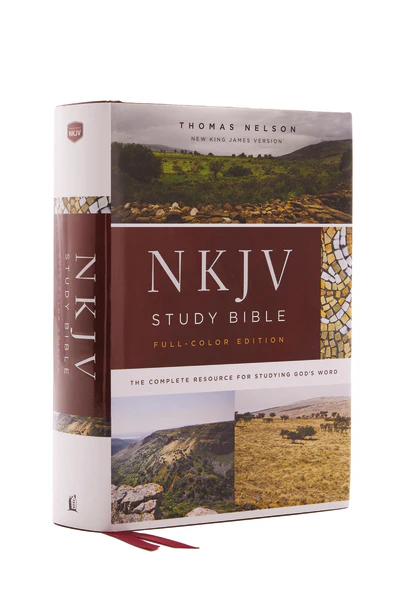Leviticus 13
New King James Version
The Law Concerning Leprosy
13 And the Lord spoke to Moses and Aaron, saying: 2 “When a man has on the skin of his body a swelling, (A)a scab, or a bright spot, and it becomes on the skin of his body like a [a]leprous sore, (B)then he shall be brought to Aaron the priest or to one of his sons the priests. 3 The priest shall examine the sore on the skin of the body; and if the hair on the sore has turned white, and the sore appears to be deeper than the skin of his body, it is a leprous sore. Then the priest shall examine him, and pronounce him [b]unclean. 4 But if the bright spot is white on the skin of his body, and does not appear to be deeper than the skin, and its hair has not turned white, then the priest shall isolate the one who has the sore (C)seven days. 5 And the priest shall examine him on the seventh day; and indeed if the sore appears to be as it was, and the sore has not spread on the skin, then the priest shall isolate him another seven days. 6 Then the priest shall examine him again on the seventh day; and indeed if the sore has faded, and the sore has not spread on the skin, then the priest shall pronounce him clean; it is only a scab, and he (D)shall wash his clothes and be clean. 7 But if the scab should at all spread over the skin, after he has been seen by the priest for his cleansing, he shall be seen by the priest again. 8 And if the priest sees that the scab has indeed spread on the skin, then the priest shall pronounce him [c]unclean. It is leprosy.
9 “When the leprous sore is on a person, then he shall be brought to the priest. 10 (E)And the priest shall examine him; and indeed if the swelling on the skin is white, and it has turned the hair white, and there is a spot of raw flesh in the swelling, 11 it is an old leprosy on the skin of his body. The priest shall pronounce him [d]unclean, and shall not isolate him, for he is unclean.
12 “And if leprosy breaks out all over the skin, and the leprosy covers all the skin of the one who has the sore, from his head to his foot, wherever the priest looks, 13 then the priest shall consider; and indeed if the leprosy has covered all his body, he shall pronounce him clean who has the sore. It has all turned (F)white. He is clean. 14 But when raw flesh appears on him, he shall be unclean. 15 And the priest shall examine the raw flesh and pronounce him to be unclean; for the raw flesh is unclean. It is leprosy. 16 Or if the raw flesh changes and turns white again, he shall come to the priest. 17 And the priest shall examine him; and indeed if the sore has turned white, then the priest shall pronounce him clean who has the sore. He is clean.
18 “If the body develops a (G)boil in the skin, and it is healed, 19 and in the place of the boil there comes a white swelling or a bright spot, reddish-white, then it shall be shown to the priest; 20 and if, when the priest sees it, it indeed appears deeper than the skin, and its hair has turned white, the priest shall pronounce him unclean. It is a leprous sore which has broken out of the boil. 21 But if the priest examines it, and indeed there are no white hairs in it, and it is not deeper than the skin, but has faded, then the priest shall isolate him seven days; 22 and if it should at all spread over the skin, then the priest shall pronounce him unclean. It is a [e]leprous sore. 23 But if the bright spot stays in one place, and has not spread, it is the scar of the boil; and the priest shall pronounce him clean.
24 “Or if the body receives a (H)burn on its skin by fire, and the raw flesh of the burn becomes a bright spot, reddish-white or white, 25 then the priest shall examine it; and indeed if the hair of the bright spot has turned white, and it appears deeper than the skin, it is leprosy broken out in the burn. Therefore the priest shall pronounce him unclean. It is a leprous sore. 26 But if the priest examines it, and indeed there are no white hairs in the bright spot, and it is not deeper than the skin, but has faded, then the priest shall isolate him seven days. 27 And the priest shall examine him on the seventh day. If it has at all spread over the skin, then the priest shall pronounce him unclean. It is a leprous sore. 28 But if the bright spot stays in one place, and has not spread on the skin, but has faded, it is a swelling from the burn. The priest shall pronounce him clean, for it is the scar from the burn.
29 “If a man or woman has a sore on the head or the beard, 30 then the priest shall examine the sore; and indeed if it appears deeper than the skin, and there is in it thin yellow hair, then the priest shall pronounce him unclean. It is a scaly leprosy of the head or beard. 31 But if the priest examines the scaly sore, and indeed it does not appear deeper than the skin, and there is no black hair in it, then the priest shall isolate the one who has the scale seven days. 32 And on the seventh day the priest shall examine the sore; and indeed if the scale has not spread, and there is no yellow hair in it, and the scale does not appear deeper than the skin, 33 he shall shave himself, but the scale he shall not shave. And the priest shall isolate the one who has the scale another seven days. 34 On the seventh day the priest shall examine the scale; and indeed if the scale has not spread over the skin, and does not appear deeper than the skin, then the priest shall pronounce him clean. He shall wash his clothes and be clean. 35 But if the scale should at all spread over the skin after his cleansing, 36 then the priest shall examine him; and indeed if the scale has spread over the skin, the priest need not seek for yellow hair. He is unclean. 37 But if the scale appears to be at a standstill, and there is black hair grown up in it, the scale has healed. He is clean, and the priest shall pronounce him clean.
38 “If a man or a woman has bright spots on the skin of the body, specifically white bright spots, 39 then the priest shall look; and indeed if the bright spots on the skin of the body are dull white, it is a white spot that grows on the skin. He is clean.
40 “As for the man whose hair has fallen from his head, he is bald, but he is clean. 41 He whose hair has fallen from his forehead, he is bald on the forehead, but he is clean. 42 And if there is on the bald head or bald (I)forehead a reddish-white sore, it is leprosy breaking out on his bald head or his bald forehead. 43 Then the priest shall examine it; and indeed if the swelling of the sore is reddish-white on his bald head or on his bald forehead, as the appearance of leprosy on the skin of the body, 44 he is a leprous man. He is unclean. The priest shall surely pronounce him [f]unclean; his sore is on his (J)head.
45 “Now the leper on whom the sore is, his clothes shall be torn and his head (K)bare; and he shall (L)cover his mustache, and cry, (M)‘Unclean! Unclean!’ 46 He shall be unclean. All the days he has the sore he shall be unclean. He is unclean, and he shall [g]dwell alone; his dwelling shall be (N)outside the camp.
The Law Concerning Leprous Garments
47 “Also, if a garment has a [h]leprous plague in it, whether it is a woolen garment or a linen garment, 48 whether it is in the warp or woof of linen or wool, whether in leather or in anything made of leather, 49 and if the plague is greenish or reddish in the garment or in the leather, whether in the warp or in the woof, or in anything made of leather, it is a leprous [i]plague and shall be shown to the priest. 50 The priest shall examine the plague and isolate that which has the plague seven days. 51 And he shall examine the plague on the seventh day. If the plague has spread in the garment, either in the warp or in the woof, in the leather or in anything made of leather, the plague is (O)an active leprosy. It is unclean. 52 He shall therefore burn that garment in which is the plague, whether warp or woof, in wool or in linen, or anything of leather, for it is an active leprosy; the garment shall be burned in the fire.
53 “But if the priest examines it, and indeed the plague has not spread in the garment, either in the warp or in the woof, or in anything made of leather, 54 then the priest shall command that they wash the thing in which is the plague; and he shall isolate it another seven days. 55 Then the priest shall examine the plague after it has been washed; and indeed if the plague has not changed its color, though the plague has not spread, it is unclean, and you shall burn it in the fire; it continues eating away, whether the damage is outside or inside. 56 If the priest examines it, and indeed the plague has faded after washing it, then he shall tear it out of the garment, whether out of the warp or out of the woof, or out of the leather. 57 But if it appears again in the garment, either in the warp or in the woof, or in anything made of leather, it is a spreading plague; you shall burn with fire that in which is the plague. 58 And if you wash the garment, either warp or woof, or whatever is made of leather, if the plague has disappeared from it, then it shall be washed a second time, and shall be clean.
59 “This is the law of the leprous plague in a garment of wool or linen, either in the warp or woof, or in anything made of leather, to pronounce it clean or to pronounce it unclean.”
Read full chapterFootnotes
- Leviticus 13:2 Heb. saraath, disfiguring skin diseases, including leprosy, and so in vv. 2–46 and 14:2–32
- Leviticus 13:3 defiled
- Leviticus 13:8 defiled
- Leviticus 13:11 defiled
- Leviticus 13:22 infection
- Leviticus 13:44 altogether defiled
- Leviticus 13:46 live alone
- Leviticus 13:47 A mold, fungus, or similar infestation, and so in vv. 47–59
- Leviticus 13:49 mark
Mark 6:1-29
New King James Version
Jesus Rejected at Nazareth(A)
6 Then (B)He went out from there and came to His own country, and His disciples followed Him. 2 And when the Sabbath had come, He began to teach in the synagogue. And many hearing Him were (C)astonished, saying, (D)“Where did this Man get these things? And what wisdom is this which is given to Him, that such mighty works are performed by His hands! 3 Is this not the carpenter, the Son of Mary, and (E)brother of James, Joses, Judas, and Simon? And are not His sisters here with us?” So they (F)were offended at Him.
4 But Jesus said to them, (G)“A prophet is not without honor except in his own country, among his own relatives, and in his own house.” 5 (H)Now He could do no mighty work there, except that He laid His hands on a few sick people and healed them. 6 And (I)He marveled because of their unbelief. (J)Then He went about the villages in a circuit, teaching.
Sending Out the Twelve(K)
7 (L)And He called the twelve to Himself, and began to send them out (M)two by two, and gave them power over unclean spirits. 8 He commanded them to take nothing for the journey except a staff—no bag, no bread, no copper in their money belts— 9 but (N)to wear sandals, and not to put on two tunics.
10 (O)Also He said to them, “In whatever place you enter a house, stay there till you depart from that place. 11 (P)And [a]whoever will not receive you nor hear you, when you depart from there, (Q)shake off the dust under your feet as a testimony against them. [b]Assuredly, I say to you, it will be more tolerable for Sodom and Gomorrah in the day of judgment than for that city!”
12 So they went out and preached that people should repent. 13 And they cast out many demons, (R)and anointed with oil many who were sick, and healed them.
John the Baptist Beheaded(S)
14 (T)Now King Herod heard of Him, for His name had become well known. And he said, “John the Baptist is risen from the dead, and therefore (U)these powers are at work in him.”
15 (V)Others said, “It is Elijah.”
And others said, “It is [c]the Prophet, (W)or like one of the prophets.”
16 (X)But when Herod heard, he said, “This is John, whom I beheaded; he has been raised from the dead!” 17 For Herod himself had sent and laid hold of John, and bound him in prison for the sake of Herodias, his brother Philip’s wife; for he had married her. 18 Because John had said to Herod, (Y)“It is not lawful for you to have your brother’s wife.”
19 Therefore Herodias [d]held it against him and wanted to kill him, but she could not; 20 for Herod (Z)feared John, knowing that he was a just and holy man, and he protected him. And when he heard him, he [e]did many things, and heard him gladly.
21 (AA)Then an opportune day came when Herod (AB)on his birthday gave a feast for his nobles, the high officers, and the chief men of Galilee. 22 And when Herodias’ daughter herself came in and danced, and pleased Herod and those who sat with him, the king said to the girl, “Ask me whatever you want, and I will give it to you.” 23 He also swore to her, (AC)“Whatever you ask me, I will give you, up to half my kingdom.”
24 So she went out and said to her mother, “What shall I ask?”
And she said, “The head of John the Baptist!”
25 Immediately she came in with haste to the king and asked, saying, “I want you to give me at once the head of John the Baptist on a platter.”
26 (AD)And the king was exceedingly sorry; yet, because of the oaths and because of those who sat with him, he did not want to refuse her. 27 Immediately the king sent an executioner and commanded his head to be brought. And he went and beheaded him in prison, 28 brought his head on a platter, and gave it to the girl; and the girl gave it to her mother. 29 When his disciples heard of it, they came and (AE)took away his corpse and laid it in a tomb.
Read full chapter
Psalm 39
New King James Version
Prayer for Wisdom and Forgiveness
To the Chief Musician. To Jeduthun. A Psalm of David.
39 I said, “I will guard my ways,
Lest I sin with my (A)tongue;
I will restrain my mouth with a muzzle,
While the wicked are before me.”
2 (B)I was mute with silence,
I held my peace even from good;
And my sorrow was stirred up.
3 My heart was hot within me;
While I was [a]musing, the fire burned.
Then I spoke with my tongue:
4 “Lord, (C)make me to know my end,
And what is the measure of my days,
That I may know how frail I am.
5 Indeed, You have made my days as handbreadths,
And my age is as nothing before You;
Certainly every man at his best state is but (D)vapor. Selah
6 Surely every man walks about like a shadow;
Surely they [b]busy themselves in vain;
He heaps up riches,
And does not know who will gather them.
7 “And now, Lord, what do I wait for?
My (E)hope is in You.
8 Deliver me from all my transgressions;
Do not make me (F)the reproach of the foolish.
9 (G)I was mute, I did not open my mouth,
Because it was (H)You who did it.
10 (I)Remove Your plague from me;
I am consumed by the blow of Your hand.
11 When with rebukes You correct man for iniquity,
You make his beauty (J)melt away like a moth;
Surely every man is vapor. Selah
12 “Hear my prayer, O Lord,
And give ear to my cry;
Do not be silent at my tears;
For I am a stranger with You,
A sojourner, (K)as all my fathers were.
13 (L)Remove Your gaze from me, that I may regain strength,
Before I go away and (M)am no more.”
Footnotes
- Psalm 39:3 meditating
- Psalm 39:6 make an uproar for nothing
Proverbs 10:10
New King James Version
10 He who winks with the eye causes trouble,
But a prating fool will fall.
Scripture taken from the New King James Version®. Copyright © 1982 by Thomas Nelson. Used by permission. All rights reserved.
Bible Gateway Recommends






